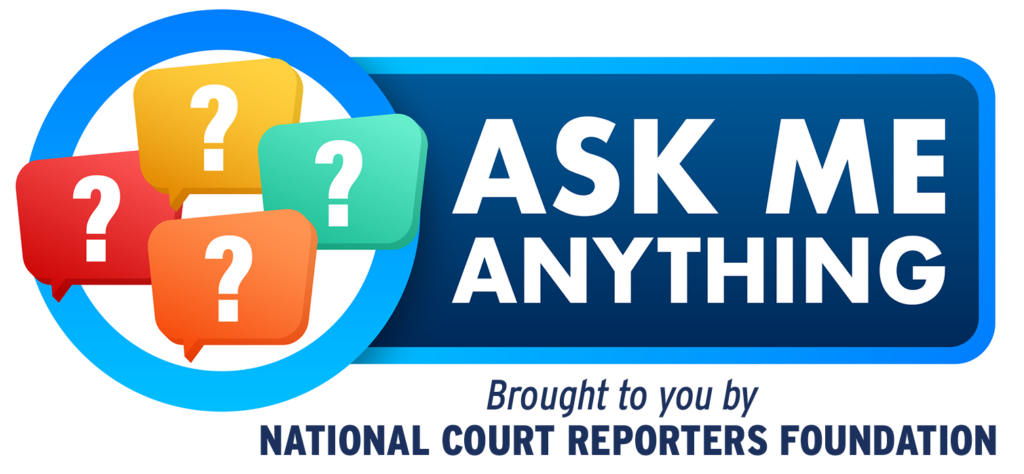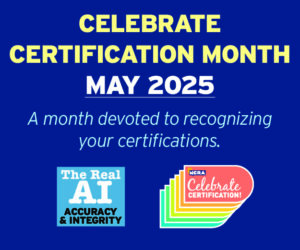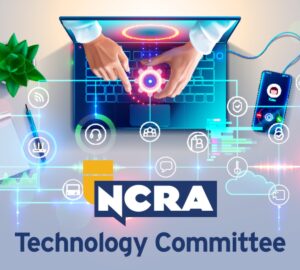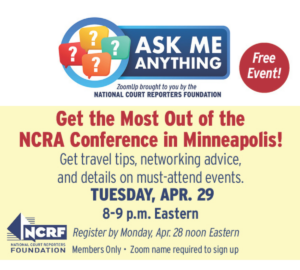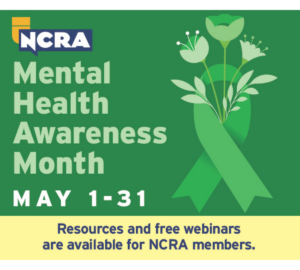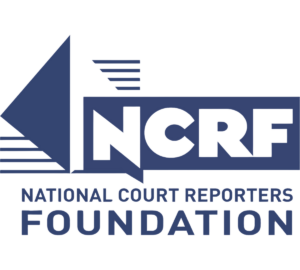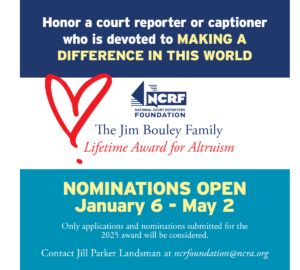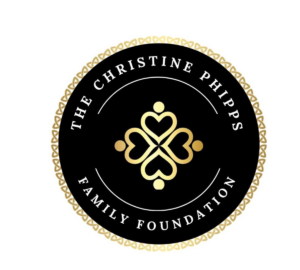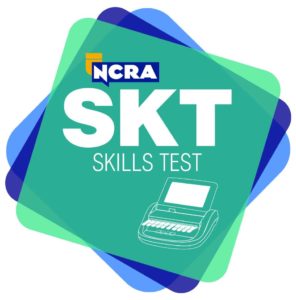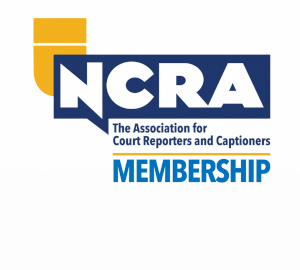By Jill Parker Landsman
It is empowering when you can take control of your financial future. Panelists were on hand earlier this month at NCRF’s Ask Me Anything on Fiscal Responsibility to share their tips on budgeting and money management.
Learning how to navigate a budget responsibly is key for well-being and professional success, suggested the panelists. They shared best practices about budgeting, taxes, and retirement planning. Ask Me Anything Moderator and NCRF Chair-Elect Meredith Bonn, RPR, CRR, cautioned that seeking professional advice from a financial advisor, CPA, or lawyer best accommodates each person’s financial situation.
Financial Management Strategies
The panelists shared their experiences and advice on how to allocate funds, including setting aside a percentage for taxes, savings, and retirement. They also discussed the importance of being proactive in managing finances, such as setting up ongoing calendar reminders for quarterly tax payments. Panelists also encouraged visual organization and using tech tools to help manage finances.
Eric Allen, an official from Staten Island, N.Y., discussed the advantages of working as an official court reporter which could provide employee benefits that provide a steady income with regular raises, savings, and retirement benefits, such as a pension or a deferred compensation plan.
“My first year of reporting, I was clueless,” explained Sandy Narup, RPR, a freelancer from Apopka, Fla. “When I got a $500 paycheck, I spent it. I [later] learned to take 30 percent out and put it into a bank account that I did not have access to quickly. I have found credit unions pay more than banks, so I put it there. They pay better interest. Once a quarter, I pull out what I want [to pay taxes].”
“Thirty percent is what I pull out, too,” said Kathryn Thomas, RDR, CRR, CRC, a captioner from Caseyville, Ill. “If I am making more money in a year, I do not get surprised. I have a whiteboard. I take out taxes, a little bit to give, and a little of it for retirement. Then I have bills and fun stuff: Putting away money for travel, for Christmas, for furniture or cat bills.”
Relying on tech tools has been the backbone of the budget process for Mike Hensley, RDR, a freelancer from Dublin, Calif. “I am always a proponent of technology tools to take away responsibility of your mental bandwidth,” he said. “I’ve used tools for budgeting for 20 years. Or you can plug in your own spreadsheet.
“If you are looking at a budget, start with percentages. You make different amounts all the time. You can say 60 percent for bills, 30 percent for taxes, 10 percent for fun. You can set up a calendar reminder to be prepared and ready to go. When it comes to money, the more things you can do on the front end, the better. Quarterly payments are coming up.” Handling payments and bills in “bite-size pieces” makes this process less painful, Hensley shared.
Ron Cook, FAPR, RDR, CRR, CRC, a freelancer from Redmond, Wash., advised attendees to set up a budget infrastructure. “I think it is important to be as organized as possible. Keep a job log, keep track of the various agencies and how many pages, whether you provided rough drafts, realtime, and a per diem list for that trial.
“When you get paid, you record what you have been paid. Make sure you are paid fully. Payments may come in multiples. It might even be a couple of months later that they pay. There were times early on that I worked for free because I did not keep track of what I did. Make sure you are paid fairly and on [a timely basis],” he added.
A simple filing system and an online calendar are great tools. “I have a file of unpaid invoices in date order,” said Narup. “I attach receipts to each pay statement. Being organized is essential. Pages are on track for when they are due. Reminders come up on my calendar for when pages are due.”
“Get yourself an emergency fund,” Thomas advised. “But get out of credit card debt. I only pay for myself. It is simpler with a one-person household. I am working on my own retirement fund as a DIY.”
Hensley recommended the YNAB app for budgeting and suggested exploring other fiscal management tools. Narup shared her method of keeping personal and business finances separate using Quicken and an S Corp structure. Thomas introduced the Khan Academy’s financial literacy course as a free resource for learning about budgeting and taxes.
Managing Finances, Tax Advice, and Beyond
Each panelist discussed the importance of saving for taxes and tax increases, having a plan for one’s own money, avoiding credit card debt, saving in an HSA account for health issues, and exercising discipline in achieving financial goals. One concluding recommendation was to be aware of one’s own credit score, which changes from time to time. But earning a good credit score reflects fiscal responsibility.
Watch the full ZoomUp video here.
Coming Soon: Ask Me Anything about … What’s in Your Steno Bag?
This panel discussion offers an engaging presentation on how to pack your steno bag to make sure you are prepared with everything you need to get the job done. From the latest and greatest steno writers to innovative gadgets, this session will be packed with advice to elevate your game! Register today and make sure your bag is ready for anything your job throws your way!
The event is set for Tuesday, Jan. 27 from 8-9 p.m. Eastern. Registration is free to NCRA members.
2025 scheduled Ask Me Anything ZoomUps:
- February 25: Ask Me Anything about NCRF
- March 25: Ask Me Anything about Career Launcher
- April 29: Ask Me Anything about attending the NCRA Conference & Expo in Minneapolis
For information about Ask Me Anything ZoomUps, contact Jill Parker Landsman at jlandsman@ncra.org.
